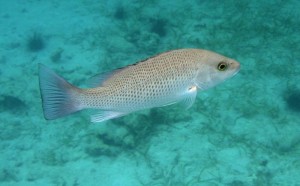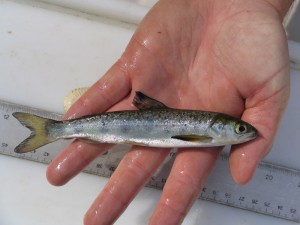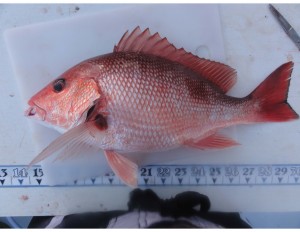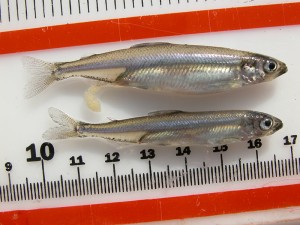

Symposia Summaries, 2015 Annual Meeting in Portland
Summaries and photos from some of the 104 symposia at the Portland Annual Meeting were compiled by symposia organizers. Most summaries includes links to the
American Fisheries Society Family of Websites:
Read our five journals and Fisheries magazine
Find thousands of unpublished agency reports and other information
Join us in Honolulu in 2024
Find an AFS Unit near you or in your area of specialty
Learn how to communicate the effects of climate change on fisheries
Summer internships for high school students
Explore our initiatives to increase diversity in the Society and in the fisheries profession
Find fisheries science products and services
Quick answers to common questions


Summaries and photos from some of the 104 symposia at the Portland Annual Meeting were compiled by symposia organizers. Most summaries includes links to the


Daniel Pauly, Ph.D. is a French researcher who became a professor at the Fisheries Centre of the University of British Columbia in 1994, of which he


By Jeff Schaeffer | AFS Co-Chief Science Editor. E-mail: [email protected] Management of many fish species requires good recruitment estimates; this is especially true for Gulf


By Jeff Schaeffer | AFS Co-Chief Science Editor. E-mail: [email protected] Ethanol production has increased 13-fold from 2000 to 2013, and this has resulted in a
By Jeff Schaeffer | AFS Co-Chief Science Editor. E-mail: [email protected] Fish culturists struggle constantly with preventing and treating disease, but one helpful trend is the


When you think of a national park, you probably have a vision of a place that is mostly pristine and untouched. So when Parks Canada


As an anadramous species, Atlantic Salmon Salmo salar have a complex life history that includes spending part of their lives in freshwater, estuarine, and marine


By Sarah Harrison | AFS Contributing Editor. E-mail: [email protected] Clifford Hutt (Mississippi State University, Human Dimensions and Conservation Laboratory) and his colleagues estimated both the


By Sarah Harrison | AFS Contributing Editor. E-mail: [email protected] In this study, Joseph H. Tarnecki and William F. Patterson of the Dauphin Island Sea Lab,


Jeff Schaeffer | AFS Co-Chief Science Editor. E-mail: [email protected] This article highlights efforts to conserve Delta Smelt Hypomesus transpacificus, an endangered species threatened by habitat

